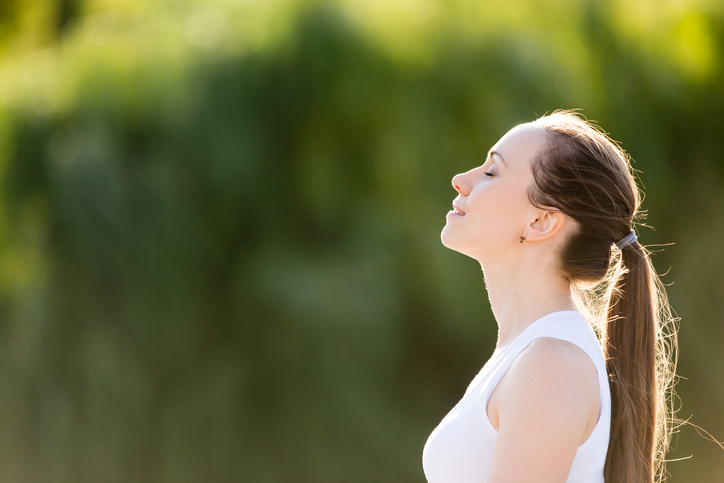The practice of mindfulness-based performance and health optimization
Article body
The School of Kinesiology’s Reita Clanton, coordinator of the Performance and Health Optimization Center, and Assistant Clinical Professor Ford Dyke teach the practice of mindfulness. During the Covid-19 pandemic, Clanton and Dyke offered mindfulness sessions for Auburn University’s campus community. Below, they share tips for people who are interested in incorporating mindfulness into their daily lives.
What is mindfulness?
FD: Mindfulness is a personal preference. It’s challenging to provide a definition for it because it’s such an intimate practice. Ideally it’s a practice for most people, and if there was a definition to give out I would say it’s your ability to maintain present moment awareness. And with that ability you can then direct your energetic state towards optimal performance and being aware of your overall health and well-being. A lot of us can perform at a really high level, but we can also sacrifice things like sleep; we can have poor nutrition; we can not hydrate adequately and we can be sedentary.
RC: The more present we are, then that’s where our personal power is: in the present moment. Our personal power lies in our ability to make choices for ourselves. The more we’re in alignment with ourselves in the present moment, then the more mental clarity we have to make choices that support us in our health and well-being in every way; not just physically but mentally and emotionally as well.
What are the four pillars of health within mindfulness?
RC: The most basic form of negative stress we experience as human beings is not having our physical needs met properly because our body is constantly trying to balance itself. We have to understand as human beings we thrive when we’re in balance on every level. To live we need oxygen, water and food—in that order, so we start with respiration to understand the value of deep breathing. And then, of course, staying hydrated is important because we are 70% water. Food, in regards to nutrition is of next importance, followed by movement. Not necessarily exercise, but just movement. And then quality of sleep. Energy flows where attention goes.
How can people incorporate mindfulness to reduce stress?
RC: Mindfulness is being intentional with our lives. If the first thing we do every morning when we wake up, instead of reacting to life to give our attention away—if we can just start with the practice of turning our awareness toward thoughts that uplift our energy and spirit and then set our intentions of how we want to show up. First thing in the morning is the most powerful time to do this because we have a clean slate. You can also take some purposeful pauses throughout the day. Take a deep breath, see where your thoughts are, set your intention for the next task you have to do and realign with the intention you set early in the morning.
Is mindfulness helpful for people to get their schedules back on track?
FD: At first glance, mindfulness has this preconceived notion of, “Oh you have to sit cross-legged and you have to burn incense and you have to drive a certain vehicle or eat a certain diet.” While that may hold true for some people, that’s not necessarily the case for a lot of us. Mindfulness can be applied to anything and everything. It takes as little as five or 10 minutes.
How can parents incorporate mindfulness activities with their children?
RC: If they have moments that they stop in your day and they all breathe together, or they stop, and go outside and say, “What do you see? What do you hear? How do you feel?” All of those are present moment experiences and can help children bring their senses to their environment. Just taking a deep breath is like having a reset and it can happen so quickly. We always have that opportunity to reset and reclaim our opportunity as we move forward.
Auburn University is a nationally ranked land grant institution recognized for its commitment to world-class scholarship, interdisciplinary research with an elite, top-tier Carnegie R1 classification, life-changing outreach with Carnegie’s Community Engagement designation and an undergraduate education experience second to none. Auburn is home to more than 30,000 students, and its faculty and research partners collaborate to develop and deliver meaningful scholarship, science and technology-based advancements that meet pressing regional, national and global needs. Auburn’s commitment to active student engagement, professional success and public/private partnership drives a growing reputation for outreach and extension that delivers broad economic, health and societal impact.






